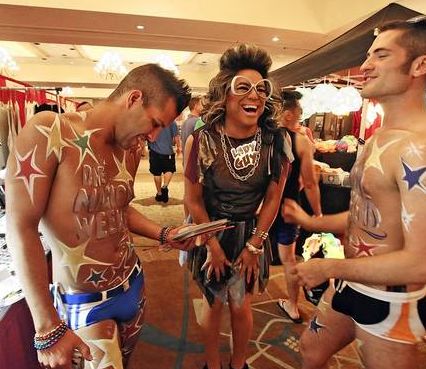Theodore Baklinski
LifeSiteNews
January 15, 2014

A survey by a UK pro-homosexual organization found that 52 percent of the self-professed homosexual youth that took part in the study reported self-harming, while numbers approaching half reported other forms of serious mental health problems.
Led by the homosexual advocacy group Metro and funded by the Big Lottery Research Fund, the “Youth Chances” survey is described by organizers as “England’s largest social study into the lives of young LGBT people.” Seven thousand 16-25 year-olds, most of whom identified as homosexual, bisexual or transgender, took part in the study. It also surveyed a small subgroup of heterosexuals (11% of the total).
The survey found that 52 percent of those questioned reported self-harming. This compares to 35% of the subgroup of heterosexual respondents to the survey. The most recent NHS data puts that number even lower, at 12% overall for this age group.
Forty-two percent of homosexual youth said they sought medical help for anxiety or depression, compared to 29% of “heterosexual non-transsexual” respondents to the survey.
The report also found that 44 percent of the young LGBT respondents reported having ever thought about suicide. This compares to 26% of “heterosexual non-transsexual” respondents to the survey, and a rate of 21% overall for this age group documented in the research from the NHS.
The study concludes that inadequate social and mental health services, and a lack of acceptance and bullying, which has created “a climate of fear and hostility,” are to blame for these problems in the UK’s homosexual youth.
“We should all be deeply concerned about the crisis in LGBTQ young people’s mental health and wellbeing that Youth Chances has uncovered,” said Metro’s acting CEO Dr Greg Ussher, adding “we can and must act on to ensure that LGBTQ young people are afforded the same life chances as their peers.”
However, a leading researcher on homosexuality questioned those conclusions, saying the causes for higher mental health issues in homosexual youth may have a more fundamental cause.
“I’ve heard personal stories from many men and women who came out of homosexuality, and they attested to the pain they lived with in the past, the unhealthy practices they engaged in, and the life and liberation they experienced when they stopped identifying as gay and engaging in same-sex relationships,” Dr. Michael L. Brown, author of “A Queer Thing Happened to America,” told LifeSiteNews.
 Daily Stormer The Most Censored Publication in History
Daily Stormer The Most Censored Publication in History


